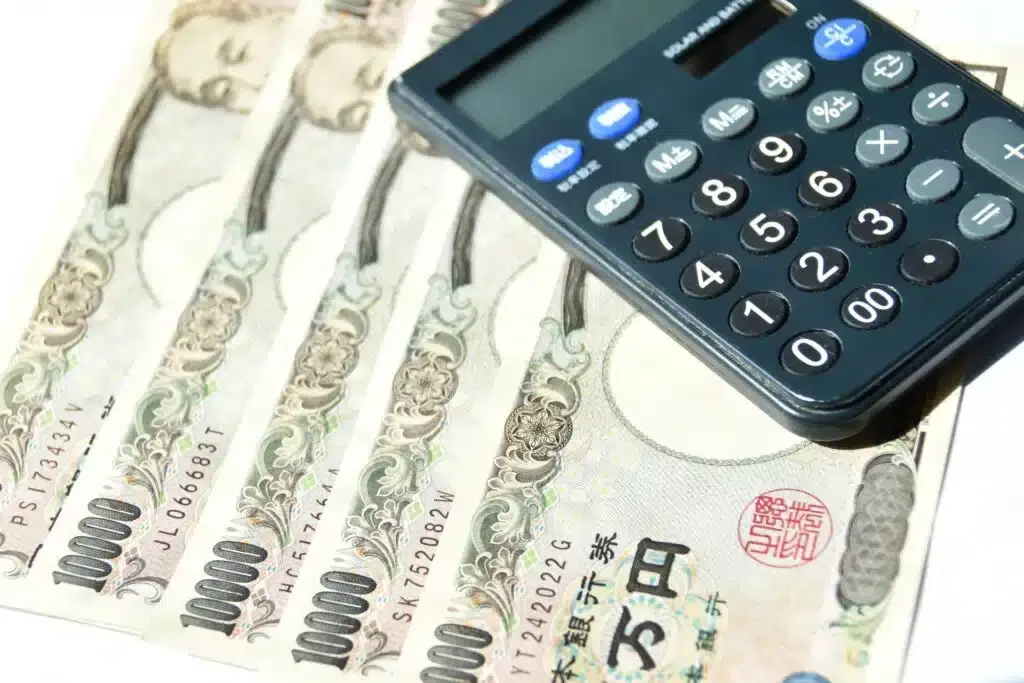What are the Key Points to Check When Given an Employment Contract?

If you’ve ever worked before, chances are you’ve signed an employment contract. However, surprisingly many people sign and seal their employment contracts without thoroughly checking the contents when they receive them. As a result, they may end up dissatisfied after they start working because the actual conditions differ from what they thought or heard. To avoid such situations, this article will explain the key points to check when you receive an employment contract.
What is an Employment Contract?
An employment contract is a document that is concluded between the employer (the hiring party) and the employee (the hired party) to clarify labor conditions and other related matters. The employment contract may also be referred to as a labor contract.
Contents of the Employment Contract

The contents of the employment contract are primarily stipulated as follows. If there is an agreement between labor and management on matters other than the following, they will be included in the employment contract.
- Details regarding the employment period
- Details regarding the workplace
- Details regarding the scope of work to be engaged in
- Details regarding overtime work
- Details regarding work on holidays
- Details regarding start and end times
- Details regarding break times
- Details regarding holidays and days off
- Details regarding paid leave
- Details regarding wages
- Details regarding non-competition
Employment Contract Draft
Employment Contract
XXXX Corporation (hereinafter referred to as “Party A”) and XXXX (hereinafter referred to as “Party B”) have entered into an employment contract under the following labor conditions today.
Article 1 (Employment Period, etc.)
1. The employment period of Party B shall be from Reiwa ○ year (20XX) ○ month ○ day to Reiwa ○ year (20XX) ○ month ○ day. Other matters concerning retirement shall be governed by the rules of employment for temporary and part-time employees.
2. The start date of Party B’s employment shall be Reiwa ○ year (20XX) ○ month ○ day.
Article 2 (Place of Work and Duties)
1. The place of work for Party B shall be the ○○ factory ○○ department of Party A, and the duties to be performed shall be ○○ duties.
2. Party A may order changes to the place of work and duties mentioned in the preceding paragraph due to business circumstances, and Party B shall accept this in advance.
Article 3 (Start and End Times and Break Times)
The start time, end time, and break time for Party B at the place of work mentioned in the previous article shall be as follows:
Start time: 8:30
End time: 17:30
Break time: 12:00 to 13:00
Article 4 (Overtime and Holiday Work)
1. Party A may order Party B to work overtime or on holidays when necessary due to business circumstances, after following the procedures stipulated by the laws and regulations and the rules of employment for temporary and part-time employees, and Party B shall accept this in advance.
2. Party A may order Party B to work late at night (from 22:00 to 5:00 the next day) when necessary due to business circumstances, and Party B shall accept this in advance.
Article 5 (Holidays and Days Off)
1. The prescribed holidays at the place of work mentioned in Article 2, Paragraph 1 shall be governed by the rules of employment for temporary and part-time employees. Other matters concerning holidays and days off when Party A exempts Party B from the duty to work shall be governed by the rules of employment for temporary and part-time employees.
2. Party A may change or substitute the prescribed holidays mentioned in the preceding paragraph to other days in advance due to business circumstances, and Party B shall accept this in advance. The procedures for such changes or substitutions shall be governed by the rules of employment for temporary and part-time employees.
Article 6 (Annual Paid Leave)
1. Party A shall grant annual paid leave to Party B according to the length of service.
2. The number of days of annual paid leave granted and the procedures for Party B to exercise the right to annual leave shall be governed by the rules of employment for temporary and part-time employees.
Article 7 (Wages, etc.)
1. The determination, calculation, closing date, and payment date of the wages to be paid by Party A to Party B shall be governed by the wage regulations for temporary and part-time employees.
2. Party A shall pay a monthly salary of □□ yen as the basic wage to Party B, and Party B shall accept this.
3. Bonuses and retirement allowances when Party B retires shall not be paid unless specifically provided for in the wage regulations or retirement allowance regulations applicable to temporary and part-time employees.
Article 8 (Prohibition of Competition)
Party B shall not engage in a business that competes with Party A or be employed by a competing company without the permission of Party A, not only during employment but also for two years after retirement.
Article 9 (Other)
1. Matters not stipulated in this contract shall be governed by laws and regulations, labor agreements, and the rules of employment for temporary and part-time employees (including separate regulations such as wage regulations and safety and health regulations).
2. If the labor conditions stipulated in this contract exceed the labor conditions stipulated in the rules of employment for temporary and part-time employees, the contract shall prevail, and if they fall below, the rules of employment for temporary and part-time employees shall prevail.
Article 10 (Special Provisions)
○○○○○○○○
End
Reiwa ○ year (20XX) ○ month ○ day
(Party A) Address: ○○ Prefecture, ○○ City, ○○ Town, ○-chome, No. ○
Name: XXXX Corporation
(Party B) Address: ○○ Prefecture, ○○ City, ○○ Town, ○-chome, No. ○
Name: (Signature) <Seal>
Difference between Employment Contract and Terms of Employment Notice
Many of you may have received a Terms of Employment Notice from your employer in addition to an Employment Contract. Both the Employment Contract and the Terms of Employment Notice stipulate the terms and conditions of employment, and their contents are almost identical.
The main differences between the two are as follows:
Firstly, the Terms of Employment Notice is a document required by law, as stipulated in Article 15, Paragraph 1 of the Japanese Labor Standards Act (労働基準法), which states, “Employers must clearly specify wages, working hours, and other working conditions when concluding a labor contract.” On the other hand, an Employment Contract is not a document required by law.
Secondly, an Employment Contract is a document concluded by the agreement of the employer and the employee, whereas the Terms of Employment Notice is a document that the employer notifies the employee of, and is not a document based on agreement.
The Relationship Between Employment Contracts and Labor Condition Notices
The contents of employment contracts and labor condition notices vary from company to company. For instance, some companies may only include the minimum legal requirements in their labor condition notices, while providing detailed provisions in their employment contracts and work rules. Conversely, there may be cases where the labor condition notice includes not only the legally required items but also detailed provisions. Furthermore, there are also situations where both the employment contract and the labor condition notice contain detailed provisions.
As such, the depth of the content in employment contracts can differ depending on the relationship between the employment contract and the labor condition notice in each company.
However, regardless of the pattern, it is a given that important matters regarding labor conditions will be included in the employment contract.
Key Points to Check in an Employment Contract

When you receive an employment contract, you may find it difficult to read due to the use of many technical terms. However, it is crucial to verify the contents of the contract. Here, we will explain the key points to check in an employment contract.
About the Contract Period
First, make sure to thoroughly check the contract period. Depending on the company’s circumstances, they may want you to start working as soon as possible, or they may want you to start working a month later. If the period until you start working is long, you may not be able to earn wages during that time, which could potentially disrupt your life.
On the other hand, even if the company requests you to start working sooner, you may not be able to resign from your current job that quickly. Therefore, it is necessary to carefully check the contract period.
About the Workplace
If the company has many branches, the interview may be conducted in Tokyo where the head office is located, but the actual workplace may be in another prefecture. Therefore, it is necessary to thoroughly check where you will actually be working.
Also, the workplace may change due to transfers or secondments. If you have a family or small children, it may be difficult to accept transfers or secondments. Therefore, it is important to first confirm the immediate workplace and also check whether there is a possibility of changing the workplace due to transfers or secondments.
About the Money to be Paid
First, wages are a typical example of the money to be paid.
It is easy to understand the content in the case of hourly wages, but in the case of monthly or annual salaries, the content is not always easy to understand. Therefore, it is necessary to thoroughly check the breakdown of wages.
Also, the presence or absence of bonuses and retirement allowances greatly affects the amount of money to be paid, so it is necessary to check.
For bonuses, in addition to whether or not a bonus is paid, if it is paid, check how much is paid based on what amount. Also, it is important to thoroughly check the relationship with transportation expenses and social insurance.
In the case of dispatch, even if the hourly wage is high, there may be no transportation expenses, so be careful. It would also be good to check the contents of welfare benefits.
About Overtime Hours
Overtime hours are a matter that greatly affects work-life balance. You may be able to see whether or not there is overtime by looking at the labor conditions notification, but it is important to thoroughly confirm how much overtime is expected in the employment contract. Also, in the employment contract, there may be a provision for deemed overtime. For example, it is a notation such as “Including 30 hours of overtime per month.” As the number of companies adopting deemed overtime is increasing, it is necessary to thoroughly check whether it is deemed overtime.
https://monolith.law/corporate/discretionary-labor-system[ja]
About Holidays
Items related to holidays are also very important in relation to work-life balance, so it is important to thoroughly check them. First, you need to check how many days off you have. In addition to the number of days off, you also need to check which days of the week you have off. For example, if you have weekdays off, there are advantages such as restaurants and theme parks being relatively empty, but on the other hand, there are disadvantages such as your family and friends having weekends off and not being able to match your days off. Therefore, please make sure to check the number and days of holidays.
Summary
We have discussed the key points to check when you are given an employment contract. Employment conditions significantly affect our lives, but surprisingly, many people do not thoroughly check them. To avoid regret later, make sure to carefully review the contents of your employment contract. It is also important to check your ‘Japanese Employment Conditions Notification’ and ‘Japanese Work Rules’. In this article, we have explained the key points to check in an employment contract. If you are unsure about reviewing the contents of the employment contract yourself, please consult with a legal expert.





















